The Institute for the Humanities has awarded fellowships to nine faculty and eight graduate students to support research projects they will pursue during 2013-14.
Faculty fellows
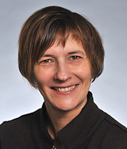
Barndt
Kerstin Barndt, associate professor of Germanic languages and literatures; Helmut F. Stern Professor.
“Non/Simultaneities. Exhibiting Time and History in Contemporary Germany”
Profoundly affected by the cultural and political transformations of the past decades, museum culture has grown in importance, contributing new images and narratives of history. The present study brings into focus a number of German history museums and exhibition projects that have responded to deindustrialization and unification by consciously opening up the temporal and ideological layers of museum discourse. Multiple voices, histories and methodologies become superimposed in simultaneous projections. Barndt considers exhibition projects ranging from post-industrial landscape exhibitions to new museums in industrial ruins, a number of specifically innovative national and regional history exhibitions.

Clague
Mark Clague, associate professor of music; U-M Humanities Institute NEH Fellow.
“O Say Can You Hear?: A Cultural Biography of the United States National Anthem”
This book project explores the transformation of a topical patriotic lyric — Francis Scott Key’s “The Defense of Fort McHenry” (1814) — into the sacred hymn of the United States. Clague argues that the 1931 congressional act that made Key’s song the nation’s anthem was less legislative creativity than simple recognition of a status “The Star-Spangled Banner” had long achieved through performance. As an emotionally potent answer to questions of national identity, the song has provided a vehicle for artists to express their interpretation of the nature of citizenship at critical junctures in the country’s history.
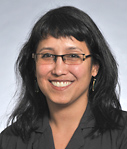
de la Cruz
Dierdre de la Cruz, assistant professor of Asian languages and cultures, and history; Richard and Lillian Ives Fellow.
“Spirit Logics: Filipino Ghosts and Global Occultisms at the Turn of the Twentieth Century”
This project examines modern Spiritism — the belief and practice of communicating with the dead — in the late colonial Philippines. As with other Spiritist communities around the world, Filipino Spiritists regarded ghosts as sources of historical insight at the same time that they embraced the different temporalities conjured with each spirit’s visit: of the past in the present, at times imagining a particular future. In the Philippine context this imagining often betokened anti-colonialism, yet the future was not necessarily that of the sovereign nation.
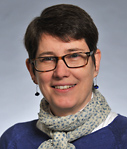
French
Katherine French, professor of history and women’s studies; Helmut F. Stern Professor.
“Household Goods and Household Interaction in Late Medieval London”
This project looks at the material culture of burgess households in late medieval London. While burgesses were only a fraction of medieval London’s population, they were socially and economically important, with a sense of their own social identity and cultural distinctiveness. Central to this identity were the values of industriousness, moderation, hierarchy and piety, all enacted within and through the household, and all of which, in their minds distinguished them from the excesses of the aristocracy and the shiftlessness of the working poor.

Hayes
Jarrod Hayes, associate professor of French; Steelcase Research Professor.
“Reading across the Color Line: Racialization in the French Americas”
“Reading across the Color Line: Racialization in the French Americas” undertakes a comparative study of literary texts from the French Americas (Louisiana and the Caribbean), in which racial difference is less visible as skin color and whose resistance to Anglo-American definitions of race encourages us to understand these definitions as historically contingent. In these texts representations of race become legible only after readers relinquish Anglo-American assumptions about a racial binary based on the “one-drop rule.”

Keane
Webb Keane, professor of anthropology; John Rich Professor.
“Ethical Life”
Natural and social sciences have long posed hard problems for familiar ways of thinking about ethics and morality. If our actions can be explained by causes beyond our will or awareness, does this mean we’re not responsible for them? What then becomes of our understanding of good lives and bad deeds? What place should cultural differences and historical change play in our understanding of ethics and morality? The book “Ethical Life,” aims to reconstruct an empirical approach to ethics in a dialogue between ethnography and its neighbors in history, psychology and philosophy.

Lyons
Scott Lyons, associate professor of American culture, English language and literature; Hunting Family Fellow.
“Touching the Pen: Encountering Modernity in Native American Literature”
Since the American civil rights era, students of Native American literature have read both written and oral texts for signs of traditionalism, resilience and resistance, but what does that literary history have to say about modernity, desire and assent? This study examines Indian encounters with modernity in Native American writing from the removal era to the present. Textual sites include travel writing in the 19th century, educational narratives in the age of assimilation, crime and courtroom fiction during the rise of tribal sovereignty, and engagements with the natural world throughout.
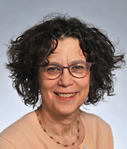
Paul
Janie Paul, professor of art and design, and social work; John Rich Professor.
“Worthy to the World: Prison Art”
Using the extensive digital archive and interviews with the artists of 18 annual Exhibitions of Art by Michigan Prisoners, which present the work of hundreds of incarcerated artists, this book investigates the ways in which the challenges and conditions of prison life give rise to the aesthetics of prison art. The book also describes how the exhibitions have evolved to heighten awareness of prison issues, form community, and sustain the lives of incarcerated citizens.
Elizabeth Sears, professor of history of art; Hunting Family Fellow.

Sears
“Warburg Circles: Towards a Cultural Historical History of Art, 1929-1964”
This book is a collective biography, and an account of an international intellectual movement. Its progenitor was art and cultural historian Aby Warburg (1866-1929), and its epicenter was the Kulturwissenschaftliche Bibliothek Warburg (Warburg Library for Cultural Study) in Hamburg, a research institute that moved to London in 1933 after the Nazis had come to power. The study focuses on transformations and adaptations of Warburg’s still-relevant scholarly project during the Nazi era, World War II and the Cold War. This was a time when heart-wrenching diasporic movements had the collateral effect of radically increasing international scholarly exchange.
Graduate student fellows

Friedman
Joshua Friedman, anthropology; Richard and Lillian Ives Graduate Student Fellow.
“Formations of Care: Virtuosos, non-adepts, and the Sacralization of Yiddish in the U.S.”
This dissertation explores the attribution of sacredness to Yiddish language and culture in the contemporary United States. Since the late 1960s “ethnic revival,” the notion that Yiddish might be considered sacred has emerged not only from Yiddish-language activists — those who seek to create Yiddish speaking communities, or raise new generations of native Yiddish speakers. The idea also has emerged from a broad, liberal Jewish public who purports to “care” deeply for Yiddish, but cannot be assumed to know the language. This dissertation explores how those publics help create Yiddish as a sacred domain.
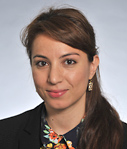
Hadjipolycarpou
Maria Hadjipolycarpou, comparative literature; James A. Winn Graduate Student Fellow.
“Inter-subjective Histories in the Mediterranean: History and the Poetics of Self in Postcolonial Life-Writing”
To date, postcolonial studies have predominantly focused on regions such as Africa, India and Southeast Asia, but much less so on the Mediterranean. This dissertation shifts questions of postcolonial subjectivity to the Mediterranean during the second half of the 20th century. The combination of the imperial with the colonial past in these societies brings about the formation of a particular subjectivity that becomes legible in the life-writing of the writers studied in this dissertation.
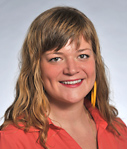
Jennifer Johnson
Jennifer Johnson, natural resources and environment; Richard and Lillian Ives Graduate Student Fellow.
“Abavubi: The Gendered Practices and Politics of Working with Fish in Uganda”
Traversing national boundaries and international networks of commerce, control, and expertise, Nyanja (Lake Victoria) has long been a crucible for transformative social dynamics characterized by “the littoral” — literally, the shoreline. It is a place of heightened prospects for actual and economic mobility, alternative moralities of sexual and economic exchange, and competing valuation of space and resources for leisure, protein, and politically strategic purposes. As this dissertation will show, Nyanja’s littoral comprises a liminal frontier of possibility, but also constraint, where a uniquely littoral cosmopolitanism continues to emerge around the gendered vernacular practices of fishing.

Monique Johnson
Monique Johnson, history of art; James A. Winn Graduate Student Fellow.
“Autofocused: The Countess de Castiglione’s Visual Memoir and Photography as Autobiography in Nineteenth-Century France”
This dissertation examines a corpus of photographic portraits of Virginia Oldoini, Countess de Castiglione (1837-1899), produced in Paris between 1856 and 1895 and the culture of related photographic practice by women in France. France was particularly inhospitable to women as photographic practitioners throughout this period, but women were especially active as photographic subjects. This study explores the implications of this position with respect to Castiglione’s oeuvre, photographs of actresses, the legal history of photography, fashion, and the photographic, satiric and popular presses, and reveals the relationship between photography, autobiography, and memoir practices throughout the Second Empire (1852-1870) and the early Third Republic (1870-1940).

McCulloch
Michael McCulloch, architecture and urban planning; Mary Fair Croushore Graduate Student Fellow.
“Building the Working City: Designs on Home and Life in Boomtown Detroit, 1914-1929”
This dissertation studies the making of industrial workers’ housing in Detroit in the period 1914-29, between the creation of Ford’s “five dollar day” and the Great Depression. The project argues that while industrialists and real estate developers promoted the ownership of single-family homes as a source of security for workers, this security proved elusive from the start due to shifting real estate values, economic crises, and racial tensions. This perspective challenges histories that cite Detroit’s instability in the postwar era, offers a historically grounded perspective on the city’s residential “ruins” of today, and provides lessons to inform the debate around American homeownership in the wake of the 2008 subprime mortgage crisis.
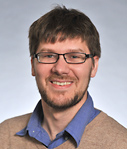
Pierre
Richard Pierre, comparative literature; Sylvia “Duffy” Engle Graduate Student Fellow.
“Mineralogies of the Subject: Languages of Stone in German and Russian Lyric Poetry, 1900-1970”
This trans-historical and cross-cultural dissertation demonstrates how poetic figures of stone developed at the nexus of 20th-century German and Russian literatures. In lyric poetry arising in these contexts — from early 20th-century Modernism to the post-WWII period — figures of stone prompt rethinking of concepts of language and the relationships of the human and nonhuman. At times, texts represent stone as interpretable, communicative and legible; at other times, texts recognize stone’s resistance to being identified with meaning, utilizing precisely this point to seek out alternative, nonhuman modes of lyric.
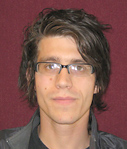
Whitener
Brian Whitener, romance languages and literatures; Mary Fair Croushore Graduate Student Fellow.
“After the Fall: Mexico, Brazil and Financialization in the Long 1990s”
Through an analysis of cultural texts, this dissertation examines the impact of financialization (the increasing importance of financial actors, markets and institutions) on Latin American countries and argues that financialization is the centerpiece, in Latin America, of the restructuring of national economies and their integration into the world market that begins in the mid-1970s. In three chapters that take a comparative approach to Mexico and Brazil, Whitener traces across a variety of cultural objects (including novels, films, and high art) the effects, reactions to, and consequences of financialization across a period he terms “the long ‘90s.”

Woolner
Cookie Woolner, history, women’s studies; Mary I. & David D. Hunting Graduate Student Fellow.
“’The Famous Lady Lovers:’ African American Women and Same-Sex Desire from Reconstruction to World War II”
This dissertation is a cultural history that examines the emergence of discourse on queer black women through the black press, the entertainment industries, and medical and social science scholarship. Woolner argues that the Great Migration played a crucial role in the creation of queer black networks in the urban North, and the black popular entertainment industry offered new opportunities for women economically as well as socially, serving as the backdrop for many performers’ same-sex relationships. While medical experts, reformers and journalists sought to represent black women who loved women as criminal and immoral, such women were nonetheless able to craft their own sexual subjectivities, both inside and outside of marriage to men, many decades before the modern gay liberation movement.

